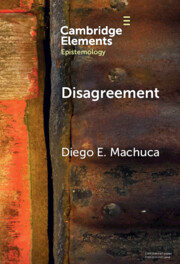Element contents
Disagreement
Published online by Cambridge University Press: 02 December 2024
Summary
- Type
- Element
- Information
- Series: Elements in EpistemologyOnline ISBN: 9781009324458Publisher: Cambridge University PressPrint publication: 19 December 2024
References
- 3
- Cited by

